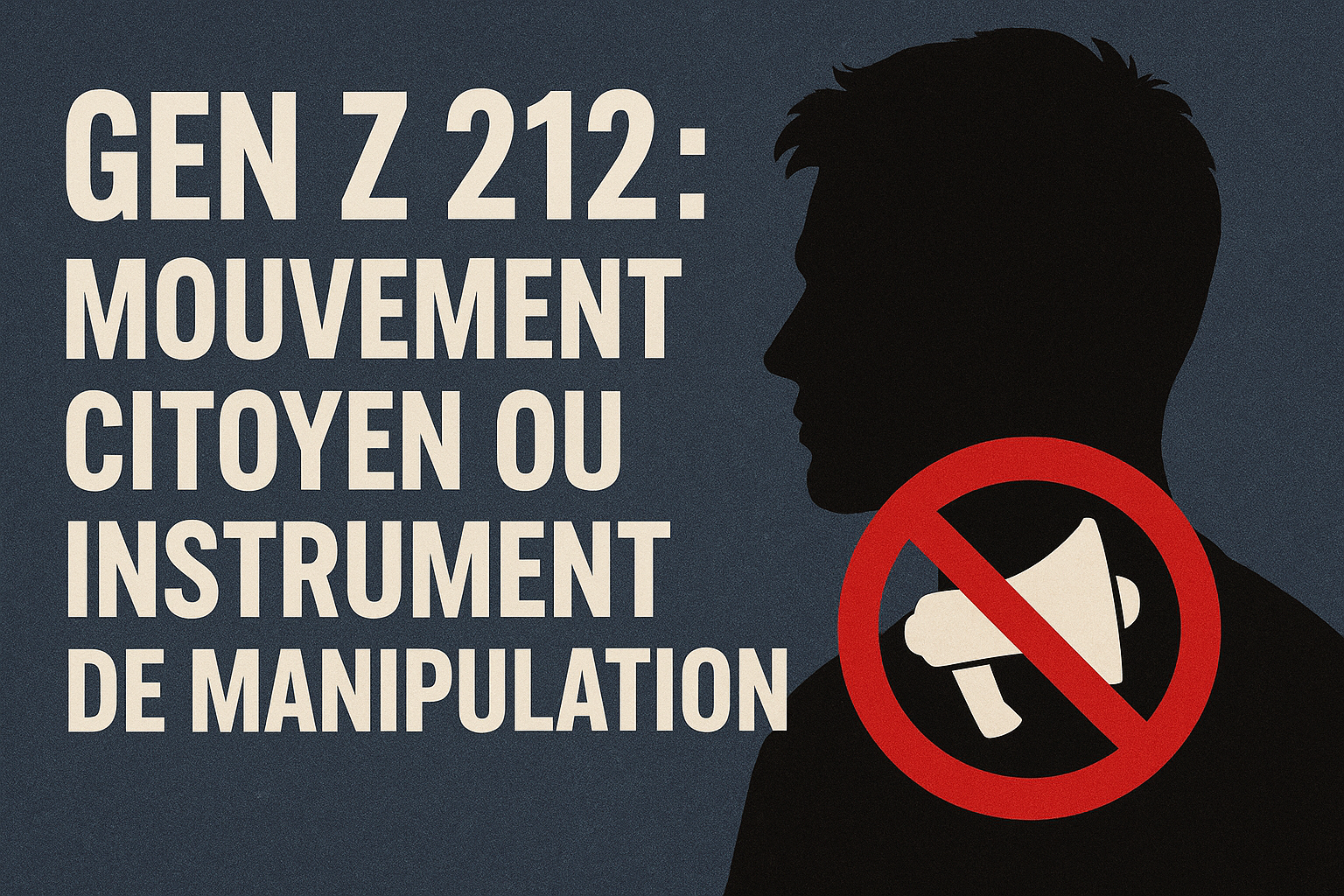GenZ 212: Citizen Movement or Instrument of Manipulation?

The so-called GEN Z 212 movement has recently presented itself as the voice of a Moroccan youth eager for change. Yet behind this façade of fresh and spontaneous engagement lies a complex mechanism where legitimate demands intersect with obscure manipulations. Figures known for their hostility toward the State, such as Omar Radi, Soulaiman Raissouni, Fouad Abdelmoumni, or even spokesmen of the Al Adl Wal Ihsan movement like Hassan Bennajeh, appears in the background, attempting to instrumentalize youth discontent for purposes that go far beyond their real concerns.
Under the guise of denouncing corruption, nepotism, or failing public services, the movement’s discourse actually hides a subversive logic. It is less about proposing constructive solutions than about sowing doubt and fueling a rift between citizens and institutions. This method recalls the strategy already employed by the February 20, 2011 movement, which, under the appearance of social protest, also carried a project aimed at destabilizing institutional foundations.
The most recent demonstrations organized by this group on September 27 and 28 in several cities of the Kingdom illustrate this duality. On one hand, a youth seeking better prospects in education, health, or employment. On the other, blatant political hijacking, which turned a social mobilization into a pretext to call for disobedience and confrontation. The arrest and subsequent release of dozens of young participants highlighted both the scale of the phenomenon and the vigilance of authorities in the face of such excesses.
The role of the so-called “electronic flies” is equally central. Often linked to extremist or nihilist currents, they use social media to artificially amplify discontent. Through manipulated videos and alarmist narratives, they fuel anger and create the illusion of massive repression, whereas the facts instead show controlled and measured management of demonstrations. Their objective is clear: to turn a social demand into a political firestorm.
This strategy primarily seeks to destabilize social cohesion. False images of repression and implicit calls for violence divide citizens, opposing supposed “rebels” to “defenders of order.” By fueling this fracture, the instigators aim to undermine trust in institutions, divert youth from constructive paths, and plunge society into a climate of mistrust.
Yet Morocco’s recent history has demonstrated that reforms are not born out of chaos but out of responsible dialogue and credible proposals. While the aspirations of the youth are legitimate, they must not be surrendered to obscure agendas. Moroccan youth must protect themselves from manipulation and choose the path of civic and democratic debate—the only way to build the future they aspire to. Morocco does not need imported disorder, but rather collective energy directed toward unity, reform, and progress.